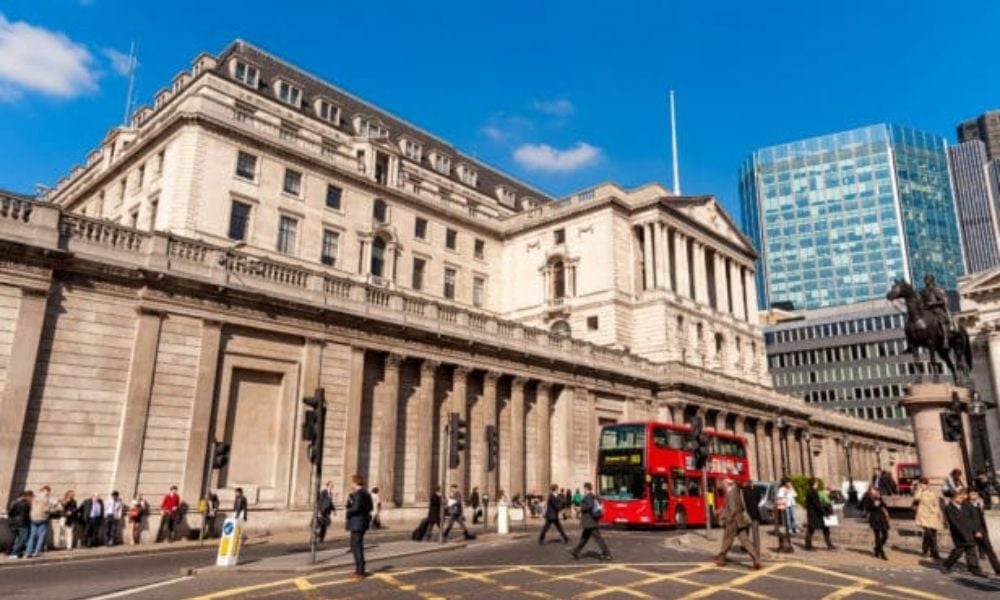The Consumer Price Index, a measure of the costs of goods and services, hit 5.4% in January, which is above the Bank of England target of 2%

Part of the Bank of England’s remit is to maintain inflation close to a 2% target level, according to Tom Denman, chief financial officer at Principality Building Society.
Denman said: “It is already more than double this amount, and is predicted to go higher still.”
On Thursday, February 03, 2022, the Bank of England increased the base rate from 0.25% to 0.50%. This was the second increase in the base rate since December. One in five mortgages across the UK are trackers, which means due to the base rate rise, repayments will increase in line with the Bank of England’s decision.
The Consumer Price Index, a measure of the costs of goods and services, hit 5.4% in January, which is above the Bank of England target of 2%.
Denman added: “The MPC has raised rates because they fear that the inflationary pressures being witnessed in the wider economy are becoming entrenched.
“If they do not act to control it, there is the risk that wage inflation will follow as employees demand higher wages to compensate for these price rises.”
As a result, Denman said this would cause firms to have to increase prices further in order to pay for those increased wage demands.
In this way, he believes there is a risk that inflation could spiral, which is something central banks are historically afraid of.
The rate of inflation, already at its highest level for almost 30 years at 5.5%, is tipped by the bank to hit 7.25% in April when the energy price cap is lifted, with bills expected to rise by an average of almost £700 to account for unprecedented increases in wholesale gas costs.
The price cap is currently limiting the rates a supplier can charge for its default tariffs.
Denman outlined that the markets are pricing in a number of base rate increases throughout 2022, beginning with a 0.25% hike in base rate.
“This could take Bank Base Rate to around 1.0% by the end of the year, or even slightly above that level,” he added.
Ben Merritt, director of mortgages for Yorkshire Building Society, said that given the acceleration in inflation in the past year, combined with a hot jobs market, it is no surprise the Bank of England has moved to increase the Bank Rate, and indeed we have had two in quick succession.
“With the Bank of England predicting inflation will peak at over 7.00% in April and remain above the 2% target in 2022 and 2023, the Bank Rate is likely to increase further this year but most economists expect it will probably settle at 0.75% to 1.00%,” added Merritt.
Base rate increases normally result in mortgage rates rising and, while this may happen, Merritt believes intense competition in the mortgage market will mean the cost of borrowing may not rise in line with the bank rate and should still remain affordable.
Further to this, Andrew Bailey, governor of the Bank of England, has warned that large wage and price rises that reflect surging inflation risk embedding rising costs in the economy that will result in “slow activity and increased unemployment”.
He told the Treasury committee of MPs that the so-called second round effects of the energy-led rise in living costs were his “biggest concern” and, if realised, would hurt the least well-off the most and lead to even higher interest rates.
Looking to expectations, Denman said that given the MPC’s behaviour and rhetoric over recent years, he was expecting them to acknowledge the risk that raising rates too far or too fast could have a negative effect on economic growth.
He added: “We also expect them to be mindful of this as we exit the pandemic and go through 2022.”
Overall, Morgan Miles, head of product pricing at Principality Building Society, said: “It has been a tough few years for savers given the low rate environment, so we are happy to be able to increase the interest rates of our savings products.”
Miles went on to detail that Principality Building Society has tried to support savers as much as possible, maintaining an average interest rate on its accounts which has been consistently higher than the market average.



